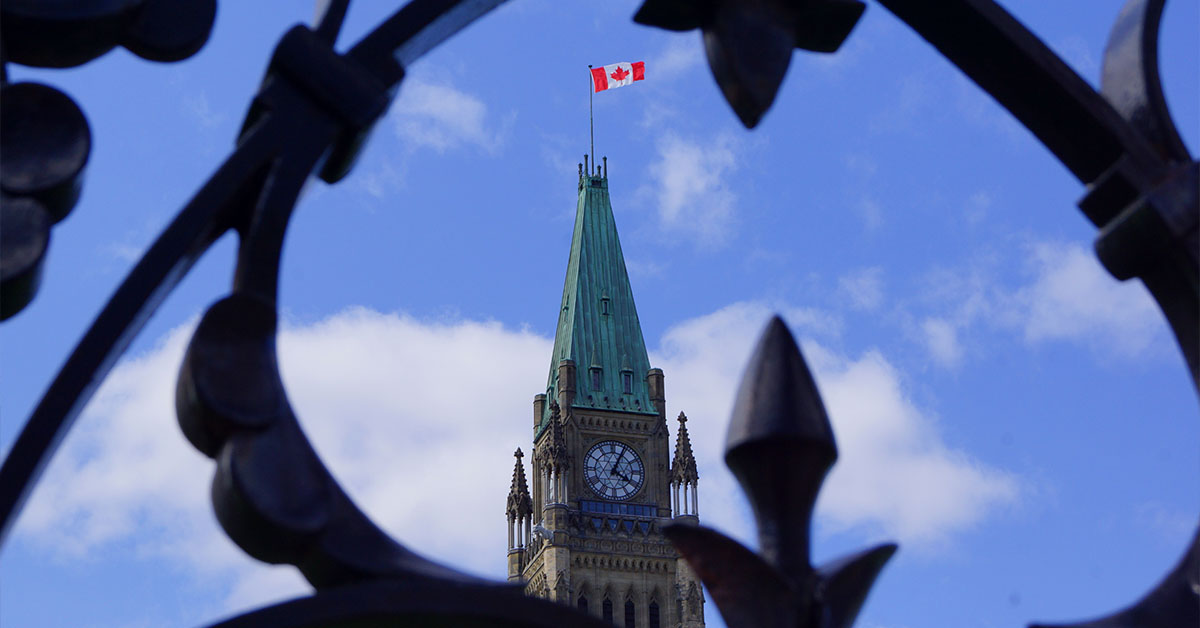
Canada Prime Minister Justin Trudeau Waiting To Receive Quebec’s Immigration Plan
Prime Minister Justin Trudeau has accused Quebec’s premier Francois Legault of saying things he knows aren’t true about immigration to the francophone province.
“It is a shame to hear the (premier) of Quebec sharing things and declarations on immigration that he simply knows are not true,” Trudeau reportedly said.
“We have worked together constructively, or we have certainly worked with members of his team constructively, over the past many, many months to take action in response to the challenges around immigration in Quebec.”
The war of words between Trudeau and Legault comes in the wake of an attempt by the provincial leader to try to bring down the federal, Liberal government last month.
Fed up over what he sees as too-high levels of temporary immigration, Legault attempted to bring down the federal government and make a reduction in temporary immigration a central issue in the next federal election.
Legault tried, unsuccessfully, to enlist the aid of a federal political party committed to Quebec nationalism, the Bloc Québécois, to bring down the Trudeau government.
That would have forced an early election which Legault was hoping to use to pressure Ottawa into lowering temporary immigration to the country.
He vowed to support a federal political party only if it pledged to lower temporary immigration to Canada.
“Each political party will have commitments to make and the commitment that the federal parties will make to reducing the number of temporary immigrants in the short term will be very important in determining whether or not I support a political party,” the Quebec premier reportedly said.
Two federal ministers called Legault to task over his claims that high levels of immigration are putting pressure on housing in the province and making it impossible to properly integrate newcomers into the Quebecois society.
Immigration Minister Marc Miller and Public Security Minister Dominic LeBlanc together sent a letter to Quebec’s new immigration minister, Jean-François Roberge, on Sept. 24 in which they claimed to be surprised that the premier feels the federal government’s efforts over the past six months have been insufficient.
In the letter to Roberge, a copy of which was reportedly obtained by The Canadian Press news agency, Miller and LeBlanc claimed they wanted to “set the record straight.”
Give Us Your Plan, Trudeau Tells Legault
Now, Trudeau himself has waded into the fray and strongly suggested the Quebec premier has been dragging his feet on the immigration portfolio.
The Canadian prime minister is defending his government’s actions and saying it is Legault who has failed to put forth a plan to cut temporary immigration in Quebec.
“I asked Mr. Legault to give us a plan, his plan, particularly on temporary foreign workers here in Quebec,” Trudeau reportedly said.
“And many, many months later, we are still waiting to see what his plan is for his responsibilities around temporary immigration here in Quebec.”
Miller and LeBlanc have suggested that Quebec share with Immigration, Refugees and Citizenship Canada (IRCC) the data it needs to identify asylum seekers ready to settle outside Quebec.
“We believe that this initiative would have a better chance of success if Quebec joined forces with us to encourage conservative provincial governments to participate, rather than encouraging a motion of censure by (Conservative Leader) Pierre Poilievre’s Conservatives,” their letter reportedly stated.
A francophone province, Quebec has maintained it cannot properly welcome and integrate all immigrants with the current record-high rate of immigration in Canada.
Legault has repeatedly called for the number of temporary immigrants in Quebec to be cut in half.
“Over the past two years, the number of temporary immigrants in Quebec has doubled from 300,000 to 600,000,” wrote Legault on Facebook.
“The federal government is largely responsible for this explosion in the number of temporary immigrants. It has been asked to reduce by half the number of those under its responsibility. We must reduce the number of immigrants to protect our public services, to take pressure off housing and to protect the French language, particularly in Montreal.”
As Quebec’s new immigration minister and French-language czar, Roberge says the province is facing major challenges on the immigration front.
“This combination of functions (I have) will increase the effectiveness of the government’s actions, which is essential in the particular context where the number of temporary immigrants is exploding and where the challenges of welcoming and integrating, as well as protecting French, are more present than ever,” said Roberge.
In their letter to him, the two federal ministers highlighted changes Ottawa has made to address Quebec’s concerns, including its signing of an extra protocol for the Safe Third Country Agreement with the United States.
That initiative came into force in March last year and has cut the number of illegal immigrant crossings at the Canadian border, a major irritant for Quebec.
In February this year, Ottawa also introduced a partial visa requirement for Mexican citizens, who represented about 17 per cent of all asylum claims in 2023, noted the ministers in their letter.
Since then, the number of claims filed by Mexicans has dropped by more than 75 per cent.
Trudeau met with Legault over the immigration portfolio as recently as this past June, resulting in extra immigration measures to help asylum seekers land jobs.
Measures To Improve Immigration To Canada Have Been Made In The Past Year
“For example, Employment and Social Development Canada has added a function to the Job Bank to match asylum seekers with job opportunities across the country, and this function is already starting to be used,” the letter reportedly stated.
“Immigration is a shared jurisdiction, and the government of Canada is seeking collaboration and concrete actions from the government of Quebec so that certain commitments communicated last June can produce more results.”
In November last year, Legault stated his government’s immigration target in 2024 would be about 50,000 newcomers, about the same as this year, in an attempt to prevent the erosion of the French language and Quebecois culture.
“We chose … to keep the thresholds, so the total number of permanent immigrants accepted per year at 50,000,” Legault reportedly said in November.
“We had evaluated the possibility of increasing it to 60,000, but it’s important for us, to stop, to reverse the decline of French.”
The dramatic rise in the number of temporary residents to the province, though, has underscored the need of employers in Quebec to find solutions to the labour shortages they face and the desire of universities and colleges there to tap into the lucrative international student market.
Often, those temporary workers and international students then seek to immigrate to Canada through either the federal Express Entry system’s Federal Skilled Worker (FSW) program, Federal Skilled Trades (FST) program and Canadian Experience Class (CEC) or the Provincial Nominee Programs (PNP) of the provinces.
Canada Prime Minister Justin Trudeau Waiting To Receive Quebec’s Immigration Plan
News
Ugandan Citizen Abducted, Held in Secret Detention for Three Months, Sparks Outrage and Calls for Justice

A disturbing new case of unlawful detention has surfaced, highlighting the ongoing human rights crisis in Uganda. A Ugandan citizen was reportedly abducted and held in a secret facility, known as a “safe house,” for three months, only to be released without charge or explanation. This incident, reported by NTV Uganda, has sparked widespread condemnation and renewed calls for accountability regarding human rights abuses in the country.
While the details surrounding the abduction remain unclear, reports indicate that the individual was taken without due process and held incommunicado—an action that has long been condemned by human rights organizations. The victim’s release, with no charges filed and no clear justification, has angered activists and citizens, who view this as yet another case of egregious abuse of power by the state.
“This is a recurring pattern,” said one human rights activist. “Abductions, secret detentions, and unexplained releases have become all too common in Uganda. These acts violate fundamental human rights and erode public trust in the justice system.”
The use of “safe houses,” unregistered detention facilities reportedly operated by security forces, has been a focal point in numerous allegations of torture and illegal imprisonment. Despite repeated calls from both local and international organizations for their closure and accountability for those involved, little action has been taken to address these violations.
This case underscores the urgent need for reform within Uganda’s security apparatus and greater accountability for human rights abuses. Observers hope that drawing attention to these injustices will spur concrete action to bring those responsible to justice and ensure the protection of basic human rights.
As frustration mounts, calls for both domestic and international pressure to hold the government accountable for such crimes grow louder. “One day, there must be accountability for all these crimes against our people,” stated one social media user, reflecting the sentiments of many Ugandans.
News
NUP Gathering Disrupted: Kyagulanyi Alleges Security Force Harassment and Arrests

National Unity Platform (NUP) President Robert Kyagulanyi has accused Ugandan security forces of using excessive force to disrupt a planned NUP gathering. The allegations were detailed in a statement shared on Twitter, following an event held to honor children of NUP supporters who were killed, disappeared, or detained for their political beliefs.
According to Kyagulanyi, security personnel, under the command of an officer identified as Asiimwe, carried out a preemptive operation early in the morning upon learning of the NUP’s plans. The forces allegedly stormed the premises, arrested workers, and deployed tear gas to disperse those present.
“The criminals under the command of one Asiimwe deployed early morning, arrested our workers, and threw tear gas into our premises. They’ve cordoned off the premises and blocked all people from accessing the place,” Kyagulanyi wrote.
Among those reportedly arrested were Saava Peter, Mudenya Samson, and Turyasingura Samson. Kyagulanyi claimed the detained workers were subjected to beatings and interrogated about their political affiliations, with security operatives labeling them as terrorists.
“These JATT operatives asked the workers who they support politically, branding them terrorists and criminals—their only crime being that they work with us. You can imagine the indignity!” Kyagulanyi lamented.
This incident adds to the growing tension in Uganda’s political climate, where opposition parties frequently accuse the government of stifling dissent. Despite the challenges, Kyagulanyi ended his statement with a message of defiance and optimism, proclaiming, “UGANDA WILL BE FREE.”
NUP Gathering Disrupted: Kyagulanyi Alleges Security Force Harassment and Arrests
News
Sudan Demands Apology from Uganda Over Army Chief Muhoozi Kainerugaba’s Threat to Invade Khartoum

Sudan has demanded an official apology from Uganda over “offensive and dangerous” comments made by the chief of Uganda army staff, who threated to invade Khartoum, the Sudan Tribune has reported.
General Muhoozi Kainerugaba, son of Ugandan President Yoweri Museveni and CDF of the Ugandan army, posted two comments on the X platform on Tuesday in which he threatened “to capture Khartoum” with the support of the US President elect Donald Trump after he takes office. The posts were deleted later.
“The government of Sudan demands and official apology from the Ugandan government for the offensive and dangerous comments of the army commander,” Sudan’s foreign ministry said in a statement that the Sudan Tribune said it has seen.
Sudan Demands Apology from Uganda Over Army Chief Muhoozi Kainerugaba’s Threat to Invade Khartoum









